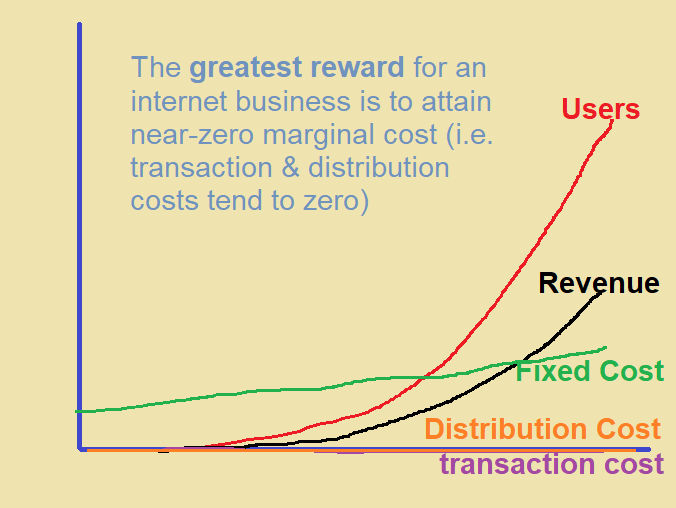
In a Harvard Business Review piece last week, I wrote thus: “These companies aggregate the data and scale massively with near-zero marginal cost, which is all made possible by the internet. Because they are ahead with an enormous number of users, they keep getting better, and the data they accumulate drives improvements in their algorithms. Changing this order is largely hopeless, and that creates a competitive stasis for local entrepreneurs”. Many have sent emails asking for the explanation.
The point is that if you can build an internet business where growth and revenue could grow without escalating marginal cost [transaction + distribution cost], you would have success. In other words, if the cost of serving an extra user is very small, you can scale very fast. It does not cost Facebook anything for adding an extra user in its platform. But it does cost an ecommerce firm operating in Lagos to serve an extra user in Yola [there is a limit you can ask a customer to pay shipping cost before he/she decides to choose a local supermarket]. To avoid that marginal cost, the ecommerce firm would just make its service not available in Yola. When that happens, it is no more a real internet business.
I try to explain this in a plot below (breaking this].
Tekedia Mini-MBA edition 16 (Feb 10 – May 3, 2025) opens registrations; register today for early bird discounts.
Tekedia AI in Business Masterclass opens registrations here.
Join Tekedia Capital Syndicate and invest in Africa’s finest startups here.

---
Register for Tekedia Mini-MBA (Feb 10 - May 3, 2025), and join Prof Ndubuisi Ekekwe and our global faculty; click here.

